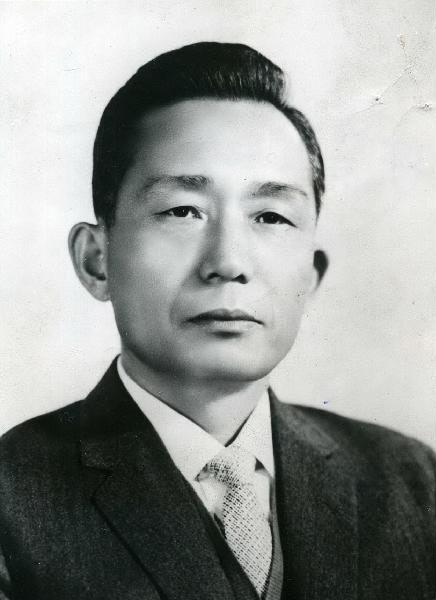As quoted in Toward Peaceful Unification: Selected Speeches & Interviews https://books.google.com/books?id=nNc2AzJmwPoC&pg=PA3&dq=%22There+was+little,+if+any,+feeling+of+loyalty+toward+the+abstract+concept+of+Korea+as+a+nation-state%22&hl=en&sa=X&ei=IOkhVebpAYqWsAWOgILoCQ&ved=0CCgQ6AEwAg#v=onepage&q&f=false (1978), Kwangmyong Publishing Company, p. 31.
1970s
Čong-hi Pak: Citáty v angličtine
Poem (August 1974), as quoted in Brothers at War: The Unending Conflict in Korea https://en.wikiquote.org/wiki/Special:BookSources/9781846680670 (2013), by Sheila Miyoshi Jager, London: Profile Books, p. 414.
1970s
As quoted in Toward Peaceful Unification: Selected Speeches & Interviews https://books.google.com/books?id=nNc2AzJmwPoC&pg=PA3&dq=%22There+was+little,+if+any,+feeling+of+loyalty+toward+the+abstract+concept+of+Korea+as+a+nation-state%22&hl=en&sa=X&ei=IOkhVebpAYqWsAWOgILoCQ&ved=0CCgQ6AEwAg#v=onepage&q&f=false (1978), Kwangmyong Publishing Company, pp. 47-48.
1970s
Diary entry (October 1974), as quoted in The Two Koreas: A Contemporary History Revised and Updated http://books.google.com/books?id=yJZKpYXh2SAC&printsec=frontcover&dq=The+Two+Koreas:+A+Contemporary+History+revised+updated&hl=en&sa=X&ei=X-xvU5TRFPOisQSa34CIBA&ved=0CCsQ6AEwAA#v=onepage&q=already%20into%20the%20last%20week&f=false (2001), by Don Oberdorfer, p. 55.
1970s
Diary entry (15 August 1975), as quoted in The Two Koreas: A Contemporary History Revised and Updated http://books.google.com/books?id=yJZKpYXh2SAC&printsec=frontcover&dq=The+Two+Koreas:+A+Contemporary+History+revised+updated&hl=en&sa=X&ei=X-xvU5TRFPOisQSa34CIBA&ved=0CCsQ6AEwAA#v=onepage&q=already%20into%20the%20last%20week&f=false (2001), by Don Oberdorfer, p. 56.
1970s
“We have been born into this land, charged with the historic mission of regenerating the nation.”
우리는 민족 중흥의 역사적 사명을 띠고 이 땅에 태어났다
The Charter of National Education of Korea(국민교육헌장) https://books.google.com/books?id=rPMABAAAQBAJ&pg=PA50#v=onepage&q&f=false (1968)
1960s
As quoted in An economy in armor; in Korea's quiet revolution https://books.google.com/books?id=yJZKpYXh2SAC&printsec=frontcover&dq=the+two+koreas&hl=en&sa=X&ei=4QMiVa7UCsu3sAWQxoAg&ved=0CB0Q6AEwAA#v=onepage&q=the%20two%20koreas&f=false (1992), by Frank B. Gibney, New York: Walker and Company, p. 50
